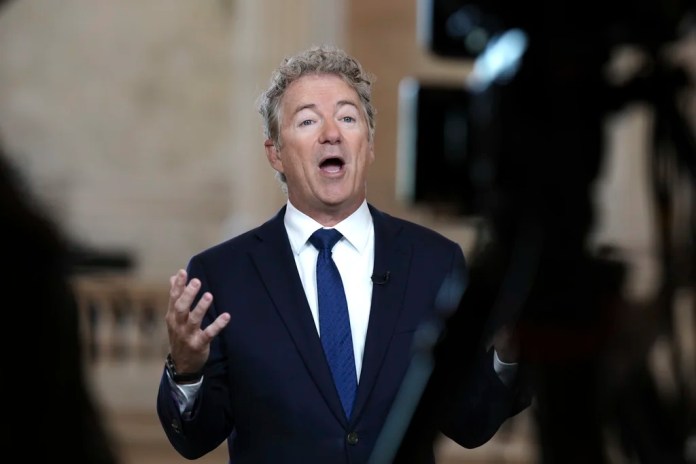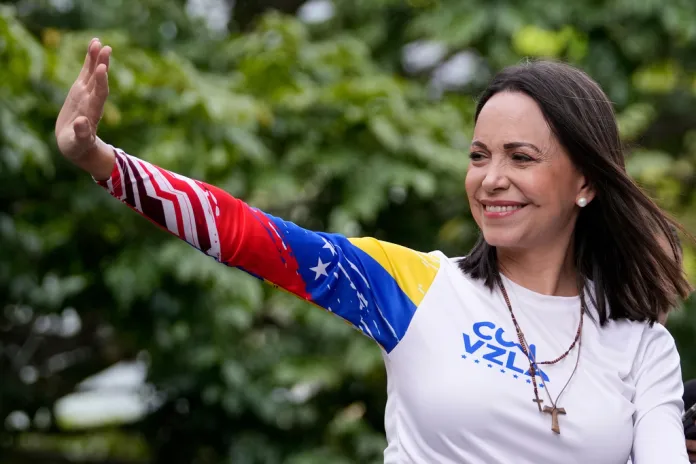Kamala Harris Hit with Another Plagiarism Allegation a Day After Scandal Erupts: ‘We Can Keep This Going’
A new plagiarism allegation against U.S. Vice President Kamala Harris has emerged, sparked by conservative activist Christopher Rufo, who cited multiple instances of plagiarism in her 2009 book, *Smart on Crime*. Rufo shared excerpts, claiming they reveal Harris copying language verbatim from sources, including a government website and a Wikipedia article, without proper attribution. In response, *The New York Times* defended Harris, suggesting that the issues identified were minor and did not reflect serious plagiarism. However, further details revealed by Rufo and analyzed by plagiarism expert Stefan Weber highlighted a broader pattern of unacknowledged copying. Despite a dismissive initial reaction from some experts, subsequent analysis has led to a divided opinion on the severity of Harris’s actions. CNN’s review concluded that improper attribution did occur, raising additional scrutiny over her practices regarding source material. The situation continues to develop, with significant public interest and commentary on the implications of these allegations.
A new plagiarism allegation has been raised against Vice President Kamala Harris as the efforts of The New York Times to support Harris have widened that controversy.
On Monday, conservative activist Christopher Rufo posted five allegations of plagiarism from her 2009 book, “Smart on Crime: A Career Prosecutor’s Plan to Make Us Safer,” which was co-authored with Joan O’C Hamilton.
The New York Times then filed a report that rose to Harris’s defense, writing that “none of the passages in question took the ideas or thoughts of another writer, which is considered the most serious form of plagiarism. Instead, the sentences copy descriptions of programs or statistical information that appear elsewhere.”
Since then, Rufo has fired back with more excerpts. “We can keep this going for a while,” he posted on X, adding, “She copied the language verbatim.”
MORE PLAGIARISM: This is a seventh instance of significant plagiarism by Kamala Harris. She copied the language verbatim from a California government website, substituting a single word, rather than paraphrasing it or putting it in quotations. We can keep this going for a while. pic.twitter.com/yHONocMSBh
— Christopher F. Rufo ⚔️ (@realchrisrufo) October 15, 2024
OH NO, MORE PLAGIARISM: This is the eighth instance of significant plagiarism by Kamala Harris. Although she cited the source, she copied long stretches of verbatim language, without paraphrasing or putting it in quotations. This is what they teach you not to do in high school. pic.twitter.com/6JNRrJ6HHQ
— Christopher F. Rufo ⚔️ (@realchrisrufo) October 15, 2024
Rufo’s posts rely on an analysis of the book by Stefan Weber, who posted his findings online.
“Harris copy-pasted a Wikipedia article into her book ‘Smart on Crime’ (2009). In total this documentation highlights 27 fragments of plagiarism in her book. Plagiarism fragments can be proven from p. 10 to p. 185,” Weber wrote.
In summarizing his findings, Weber noted, “Kamala Harris copied virtually an entire Wikipedia article into her book without providing any attribution to Wikipedia.”
“Kamala Harris fabricated a source reference, inventing a nonexistent page number,” he wrote, also noting, “The self-promotional content from Goodwill Industries was copied verbatim without citing the source (Goodwill Industries was her ‘primary partner’ on in the “Back on Track” program).”
“In many other instances, even when a source was cited with a footnote, the text was directly copied and pasted without using quotation marks. Quotation marks would have been the most transparent and honest approach, also in non-academic books,” he wrote.
“Further signs of dishonesty may be evident when sources were copied but specific details were altered, such as replacing a Subway store owner with a sandwich shop clerk (p. 124) or highlighting Southeast Asia in the context of the US gang problem (p. 184),” he wrote.
Weber also posted about the incident on his blog.
“What do these findings say about Kamala Harris? Is she in part fake? Did her ghostwriter plagiarize? Was it just the team behind her? I have no idea. I let other people from the US draw the right conclusions,” he wrote.
The Times report quoted Jonathan Bailey, a plagiarism consultant and the publisher of Plagiarism Today, as being dismissive about the incident.
“This amount of plagiarism amounts to an error and not an intent to defraud,” he said, adding that Rufo had taken relatively minor citation mistakes in a large amount of text and tried to “make a big deal of it.”
But then he stepped back from that position in a post on X.
“For those coming here from the NY Times Article. I want to be clear that I have NOT performed a full analysis of the book. My quotes were based on information provided to me by the reporters and spoke only about those passages,” he wrote.
Rufo said the Times was given Weber’s full 49-page analysis, according to the New York Post.
He said the Times “deliberately withheld” all the details.
He said he asked “politely for a correction,” but said the editor, Mary Suh, “had nothing but excuses.”
“And so, we’re going to fight this one out,” Rufo said. “They should issue a correction, but, even if they do not, I will correct the record in public.”
In its reporting on the controversy, CNN said that it “reviewed several of the passages highlighted by Rufo and found that Harris and O’C. Hamilton failed to properly attribute language to sources.”
CNN’s definition of plagiarism differed from that of the Times.
“Plagiarized works include using someone else’s work without giving them proper and appropriate credit for their ideas and words. Even if the source of the information is cited, it is still considered plagiarism if the ideas are not paraphrased or quoted in the correct place, experts told CNN late last year,” CNN wrote.
Advertise with The Western Journal and reach millions of highly engaged readers, while supporting our work. Advertise Today.
" Conservative News Daily does not always share or support the views and opinions expressed here; they are just those of the writer."




